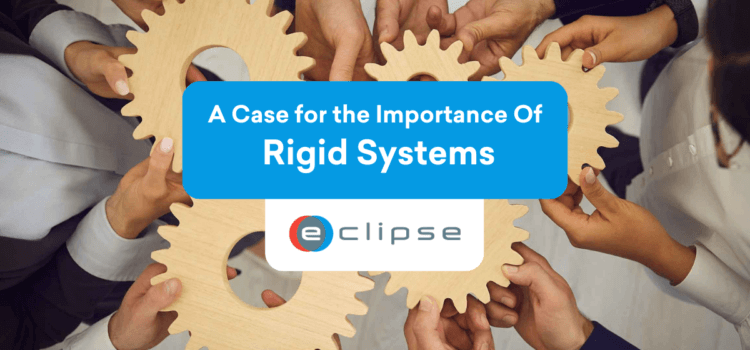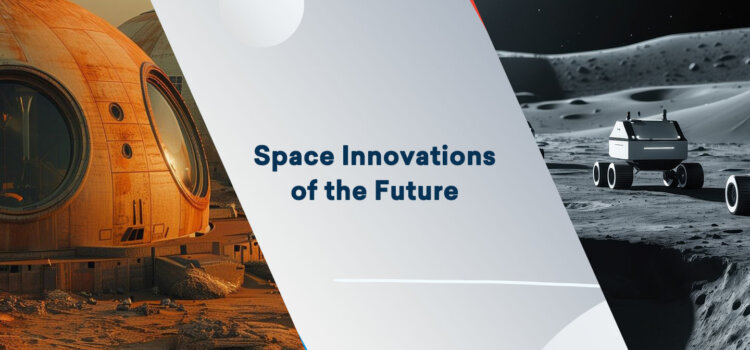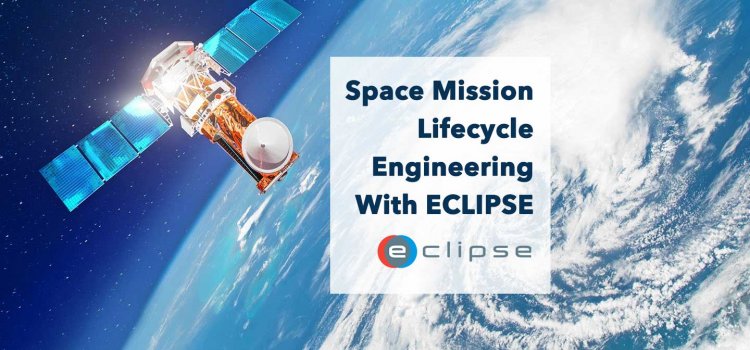
Why AI Isn’t Always the Best Solution: A Case for Rigid Systems
02 Aug, 2024
While (generative) AI and predictive algorithms are the current buzzwords, drawing much attention for their potential to revolutionize various aspects of the Space industry, it is crucial not to downplay the importance of rigid systems.
This article is here to remind you that rigid systems are absolutely integral to the success and safety of the Space industry.
Rigid Systems VS Artificial Intelligence Systems
Predetermined patterns, processes, and systems may lack the speed and lower cost than pressing a button and letting an AI “think” about it, but they offer consistency, stability and quality control, which are more important and vital in ensuring mission success.
The essence of using rigid systems in the space industry often lies in their predictability. Every aspect, from launching a satellite to planning a space mission, requires precision, a key attribute of rigid systems. Unlike AI, rigid systems operate based on predefined rules and patterns, which reduces the chances of errors and ensures consistent results. This is not to say that AI has no place in the Space industry.
AI can offer innovative solutions, improve efficiency, and provide valuable insights using predictive algorithms. However, its dependence on learning and adapting leaves room for unpredictability. Therefore, in the high-stakes space exploration environment, rigid systems’ reliability often outweighs AI’s potential benefits.
What does a Rigid System offer?
Having a rigid system can offer several benefits depending on the context. Here are some potential advantages of having a rigid system:
- Consistency and Reliability: A rigid system ensures that processes and procedures are consistently followed, leading to predictable and reliable outcomes.
- Compliance and Safety: It helps enforce compliance with regulations and safety standards. By adhering strictly to established protocols, organizations can minimize risks, prevent accidents, and ensure the well-being of employees and customers.
- Efficiency and Productivity: With a rigid system in place, tasks can be streamlined, reducing inefficiencies and improving productivity. By eliminating unnecessary steps or deviations, organizations can optimize workflow and achieve higher levels of efficiency.
- Ability to perform quality control: It enables organizations to maintain strict quality control measures. Furthermore, it gives insights into the system to perform quality management. By implementing standardized processes and procedures, organizations can monitor and evaluate performance, identify areas for improvement, and ensure consistent delivery of high-quality products or services.
- Reduced Errors and Variability: It minimizes errors and variability by eliminating guesswork or improvisation. By providing clear guidelines and instructions, organizations can reduce the likelihood of mistakes, ensuring higher accuracy and precision in their operations.
What is not a Rigid System?
Below we discuss several aspects that often seem negative about a rigid system but can actually be really positive.
- Adaptable or flexible: This lack of flexibility can be positive because it ensures consistency and stability. A rigid system can provide a strong foundation in certain industries or processes where precision and reliability are crucial.
- Open to new ideas or innovation: While this may seem like a drawback, it can be positive in situations where strict adherence to established protocols is necessary. It helps maintain quality control and prevents errors, biases and deviations that could compromise safety or efficiency.
- Easily influenced by external factors: This can be positive in scenarios where predictability and reliability are key.
- Open for experimentation: Strict adherence to established processes and procedures is essential for maintaining quality standards and ensuring product integrity.
- Suitable for rapid decision-making: In environments where careful consideration and thorough analysis are critical, a rigid system can prevent hasty decisions that could lead to costly mistakes or oversights.
Rigid Systems remain important
When you are thinking about flexibility, innovation, creativity, and quick response times. You will often think that these characteristics are positive. However, having too many of these characteristics in the wrong area can lead to catastrophic failure, especially if you cannot intervene. Therefore, being rigid is sometimes very important, especially in the Space industry!
It’s important to note that a rigid system is essential for certain departments and flexibility and adaptability in others. Therefore, striking the right balance between and within your teams’ for rigidity and flexibility is key to achieving optimal results.
ECLIPSE Software Suite helps you build a rigid system
The ECLIPSE Software Suite is great for constructing robust, efficient Space systems and technologies. This Software Suite excels in offering superior document configuration and data control capabilities. Its effectiveness has led to its growing adoption among space organizations, catering to projects of varying sizes and complexities.
ECLIPSE incorporates strict security measures, access levels, flexibility, and traceability for your documents, data, reviews, and approval cycles, bolstering your projects’ overall integrity and compliance.
ECLIPSE is also very versatile, and several solutions are integrated to offer a better and more comprehensive data and project management experience. Whether you need Document Management, Review Management, Reporting, Non-Conformance Management, or Workflow Management, ECLIPSE equips you with the essential tools for secure and efficient Space project content management.
We invite you to see it in action for yourself by experiencing a demo by one of our specialists.



